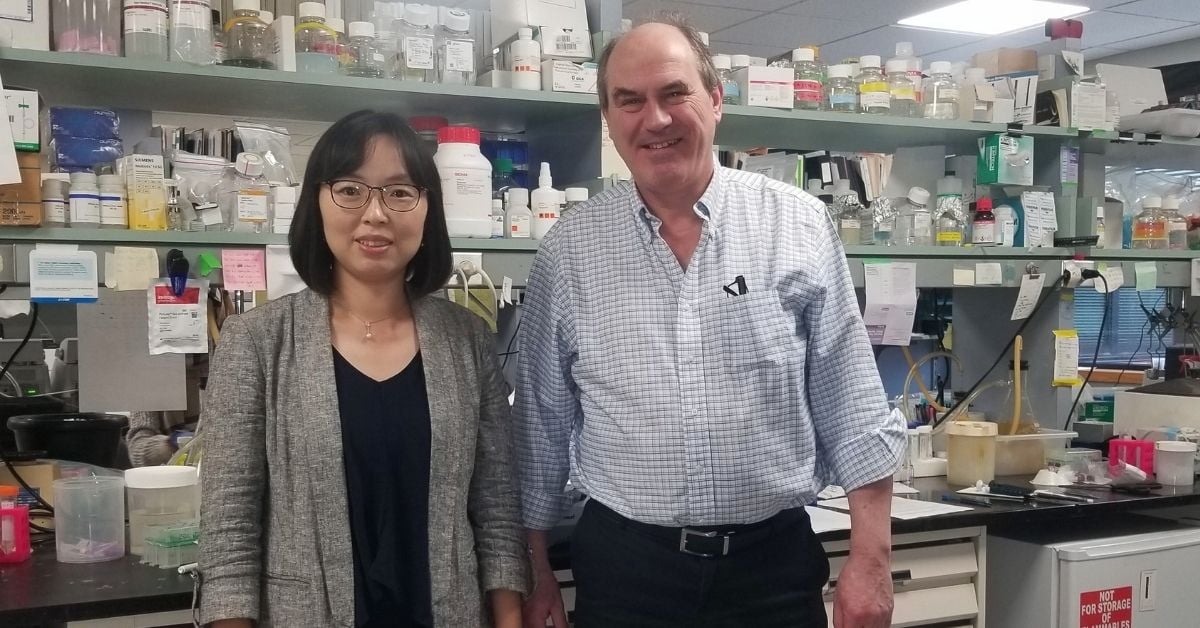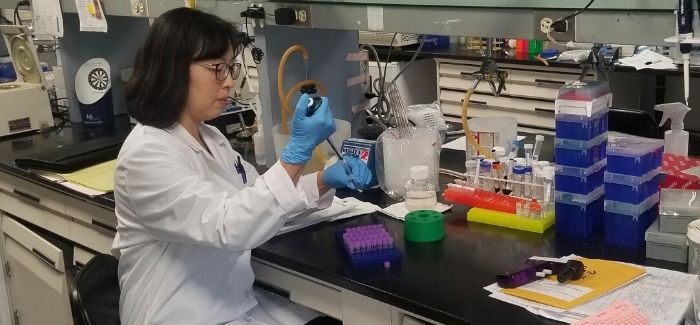Davis Lab Investigating a Potential Hormone Therapy for Type 2 Diabetes
Date Posted: Tuesday, January 05, 2021
Research from the Davis Lab, published in Genes & Development, revealed a discovery that could lead to a potential therapy for type 2 diabetes and other metabolic diseases.
Roger Davis, PhD, FRS, is a molecular biologist interested in understanding the mechanism of obesity-associated inflammation that promotes the development of metabolic syndrome and type 2 diabetes. The Davis lab focuses on the role played by stress-activated signaling pathways in these disease processes. Research by the Davis laboratory resulted in the molecular cloning of the first human stress-activated MAP kinase, the cJun NH2-terminal kinase (JNK; pronounced “Junk”). The JNK pathway is activated in response to metabolic stress and plays essential roles in inflammation caused by metabolic dysfunction, which leads to the development of metabolic syndrome and type 2 diabetes.
“JNK helps to maintain homeostasis, the body's natural balance,” said Dr. Davis, the H. Arthur Smith Professor and Chair, Program in Molecular Medicine. “When that balance is compromised, the body generates a stress which helps to rebalance itself. JNK plays a major role in that response, but chronic stress leads to a pathological JNK signaling state that drives the development of metabolic disease.”
The new analysis was led by Dr. Myoung Sook Han, Assistant Professor in the Program in Molecular Medicine, in collaboration with Dr. Guangping Gao in the Horae Gene Therapy Center, Dr. Gerald Shulman at Yale University Medical School, and Dr. Philipp Scherer at the University of Texas Southwestern Medical School.
Dr. Han reports a role for a JNK-mediated stress response in adipose tissue that promotes weight gain and metabolic dysfunction, which was unexpectedly found to be mediated by the liver hormone fibroblast growth factor 21 (FGF21). The study identifies a fat-to-liver axis that may be pharmacologically tractable for the development of drugs to counteract the metabolic pathology caused by JNK signaling in fat, including the development of metabolic syndrome and type 2 diabetes.

“By performing complex mouse genetic analysis, Dr. Han manipulated various genes in both fat and the liver, either by themselves or together, to understand gene function in different tissues,” said Dr. Davis. “She discovered that JNK in fat controls the biological activity of the liver hormone FGF21. The mechanism is mediated by a switch from local FGF21 signaling in fat to endocrine signaling by FGF21 secreted by the liver. This represents a novel paradigm for hormonal regulation.”
“The surprising results showed that the same hormone [FGF21] can signal in a single pathway by two different mechanisms in two different places,” said Dr. Han.
Insulin, on the other hand, behaves like a classical hormone. It's secreted from the pancreas and acts on peripheral tissues to regulate blood glucose.
“An important question is whether these observations of mice are relevant to human disease,” added Dr. Han. “The next step will be to replicate the experiments using "humanized" mice, collaborating with the Greiner and Brehm labs in the UMass Diabetes Center of Excellence.”
Both Dr. Davis and Dr. Han believe FGF21 will become a primary focus of drug development, helping to control metabolic syndrome and type 2 diabetes.
"Interestingly, the effects of JNK/FGF21 signaling in fat are mediated in large part by the browning of adipose tissue," said Dr. Han. “The [Silvia] Corvera and [Michael] Czech labs are currently investigating brown fat as a potential type 2 diabetes therapy, so there's a lot of progress being made by our combined laboratories at UMass Chan Medical School towards combating metabolic syndrome using different approaches."

Related Articles
Roger Davis elected to the National Academy of Sciences
